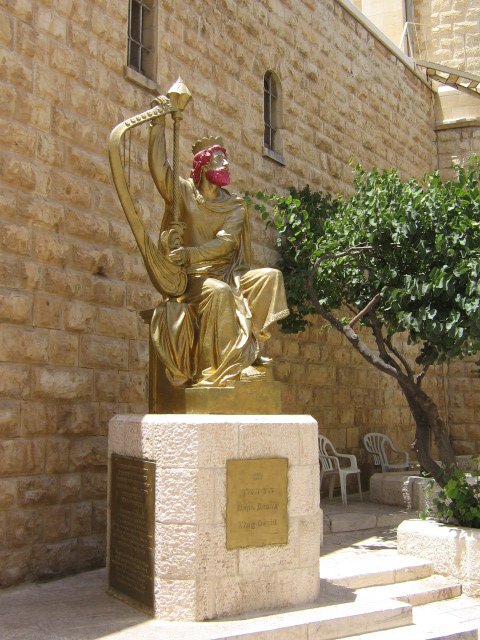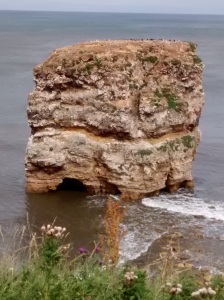This was a question Yeshua (Jesus) asked the Pharisees to which they immediately replied “The son of David”. There was no hesitation in their answer; everyone knew that Messiah was to be the son of David. They may even have thought that it was a strange question to ask. They were totally unprepared for what Yeshua said next. It completely baffled them. He said, quoting Psalm 110 verse 1, “How is it then that David, in the Spirit, calls him Lord, saying,
“‘The Lord said to my Lord,
“Sit at my right hand,
until I put your enemies under your feet”’?
If then David calls him Lord, how is he his son?”
This psalm quoted by Yeshua would have been regarded as Davidic and also Messianic so there was no debate by the Pharisees regarding this.
Yeshua having been questioned by many religious leaders had the final say by asking them a question they could not answer. In Matthew’s Gospel account we read that no-one dared ask Yeshua any more questions from that day on.
David’s Lord

The real point here is that the Messiah was to be not just greater than David, but his Lord, and one that the Almighty would address and invite to sit at His right hand until He puts Messiah’s enemies under His feet. There is an old hymn which begins ‘Hail to the Lord’s anointed (Messiah), Great David’s greater Son’.
So how can Messiah be both David’s Lord and also His Son? These could not be reconciled by the Pharisees; for once they were left speechless! It is clear from the genealogies contained in the Gospels of Matthew and Luke that Yeshua was descended from David as to His humanity.
Messiah
As to whether He was the Messiah there are many references in the New Testament which, at least in most English translations, tend to be lost as they are translated ‘Christ’ from the original Greek word ‘Christos’ which means ‘anointed’. The equivalent word in Hebrew is ‘Moshiach’.
Yeshua, after His arrest, was brought before the Sanhedrin and the High Priest specifically asked if He was the Messiah, to which He replied “You have said so. But I tell you, from now on you will see the Son of Man seated at the right hand of Power and coming on the clouds of heaven.” That was enough for the High Priest who accused Him of blasphemy and tore his robe. He, of course, would have recognised that Yeshua was referring to Daniel 7:13-14 and was making Himself equal with God sitting at His right hand.
The High Priest
The High Priest tearing his robe was highly significant. It was a violation of Leviticus 21:10 – ‘The priest who is chief among his brothers, on whose head the anointing oil is poured and who has been consecrated to wear the garments, shall not let the hair of his head hang loose nor tear his clothes’. Was this a sign that the Levitical priesthood was coming to an end as the Great High Priest Yeshua after the order of Melchizedek (see Hebrews 4:14-16, also chapters 8 and 9) was about to enter the holy places by means of His own blood . Interestingly Yeshua’s clothes were not torn – in John 19:23-24 we read that His ‘tunic was seamless, woven in one piece from top to bottom, so they said to one another, “Let us not tear it, but cast lots for it to see whose it shall be.”’ Also the curtain or veil in the temple was torn from top to bottom and the writer to the Hebrews, in 10:19-21, declares that this was in fact the flesh of the Messiah – ‘Therefore, brothers and sisters, since we have confidence to enter the holy places by the blood of Jesus, by the new and living way that he opened for us through the curtain, that is, through his flesh, and since we have a great priest over the house of God, let us draw near with a true heart in full assurance of faith, with our hearts sprinkled clean from an evil conscience and our bodies washed with pure water.’
Finally, the fact that the Messiah is the Son of David is still accepted today by religious Jewish people although most of them do not accept that He has already come, so my question to them would be this. How can anyone today who claims to be Messiah prove their heritage of the line of David when all the genealogies were destroyed in the Temple in AD 70? That is why the genealogies in Matthew and Luke are so important. Messiah will come a second time – the one who is, who was and who is to come!


